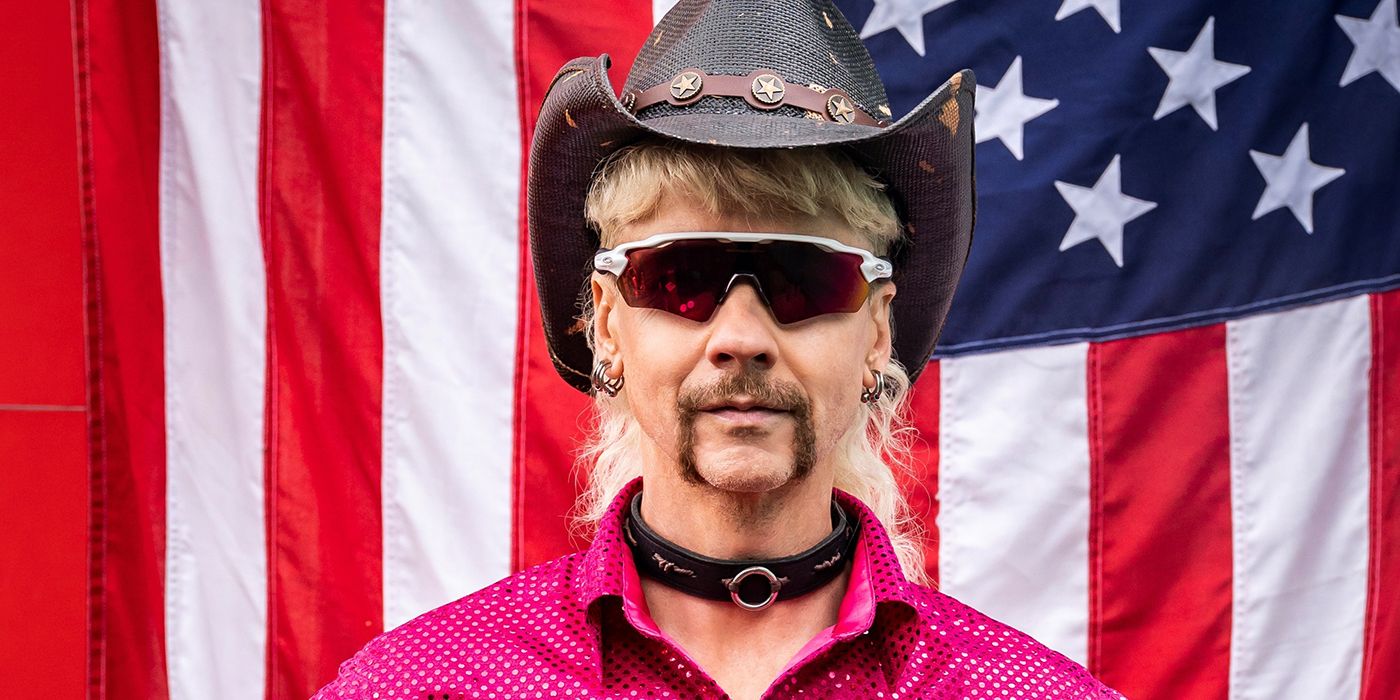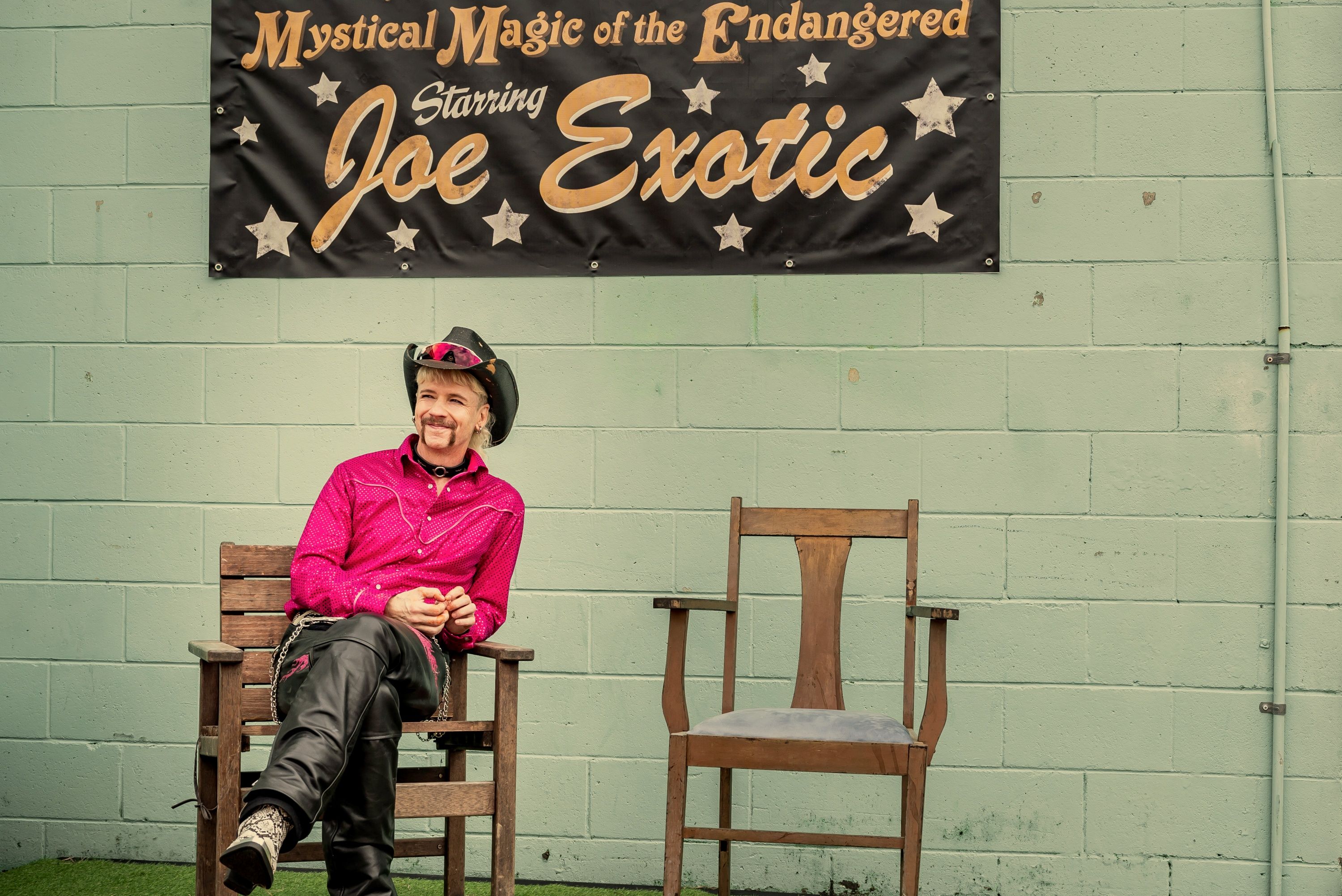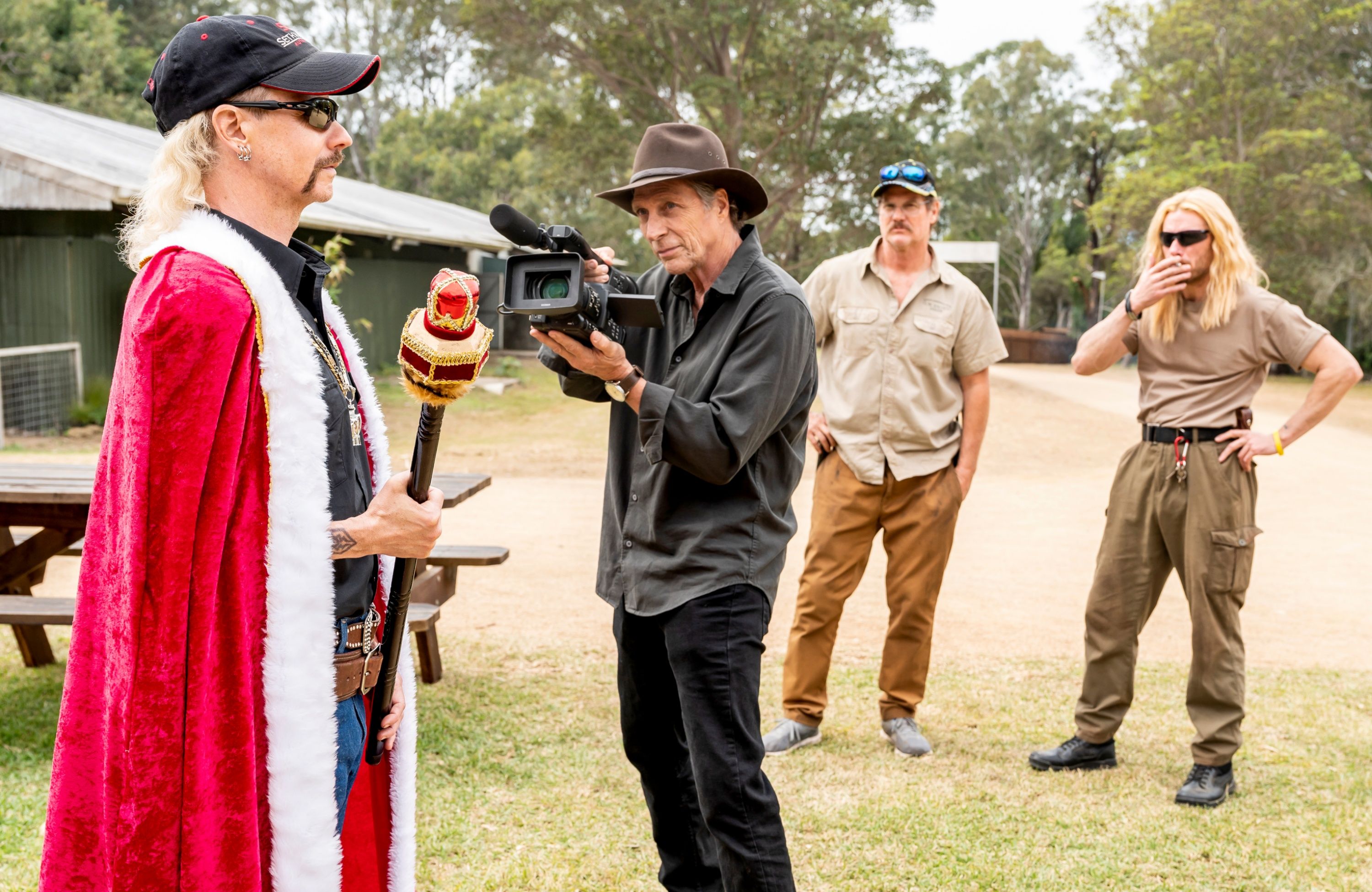Created by Kate McKinnon and Etan Frankel, the Peacock limited series Joe vs. Carole digs into the rivalry between zoo operator and big cat breeder Joe Exotic (John Cameron Mitchell) and big cat enthusiast Carole Baskin (McKinnon). The pair each knew exactly how to get under the other’s skin, and their clashing viewpoints about how to handle the exotic animals they both claimed to love led them down a road that landed Joe in prison for 22 years, for plotting Carole’s murder.
During this 1-on-1 interview with Collider, Mitchell talked about immersing himself in who Joe Exotic is and discovering the core of the man, the myth that developed about Joe and Carole with the success of the Tiger King docu-series, getting into the full look, how much Joe was shaped by the pain and grief he experienced, and how his legal battle with Carole got so twisted. He also talked about why he wanted to sign on for his role in the Netflix adaptation of Neil Gaiman’s Sandman.
Collider: This story is so wild, and you’re so great in this role. How do you take on a character like this, where people probably know what he looks like more than they know anything else about him? Where did you start with that?
JOHN CAMERON MITCHELL: I just immersed myself. I hadn’t seen the docu-series. I watched a little bit for the audition, and then watched the rest of it later. It wasn’t to my taste. It was a little too unempathetic. But there’s so much footage of him. There was one particular tape of him, as a very young man in the ‘90s, and he was a softer creature. He had a lisp, and he was not brash and over the top, he was just loving on his animals. I thought, “This is the core of him. This is what got corrupted. This is what got covered over, by the scar tissue of his experience.” Soon after that, he lost his husband. Trouble and death dogged him, his whole life. He was sexually abused. He experienced a lot of homophobia. Carole had her own abuse. We see these characters in these flashbacks.
That’s what’s so great about this script, you really get to know them. It doesn’t stint on the comedy and the camp and the over-the-top-ness, but we try to keep it real. Both Kate [McKinnon] and I agreed that we didn’t want to pantomime them. We wanted to interpret them. We’re not doing every twitch that they do. We’re trying to get at the heart of what they want and what they went through and how they fucked up. There’s a sense of tragedy there. The tragedy only happens, if someone has the ability to be noble, and then they fall short. Otherwise, it’s just a story of villains or victims. But a tragedy, as defined by the Greeks, is someone who could have been noble, but a tragic flaw takes them down. That’s how I feel about Joe. It feels a little bit like a Richard III type of story without too much of the poetry.
It’s such an interesting show because the first instinct, when you hear about something like this, is to wonder why we need a fictional version of Joe and Carole. We already know how crazy all of this was. But in watching this, you realize that you really just have formed caricature of them in your mind and this show makes them both feel human and humanized.
MITCHELL: They’re so well known, in one way. It’s almost like the myth of a family. You say, “Your grandfather was a vaudevillian and a womanizer, and he did this and that,” and you get a mythology of someone. But then, you find their love letters or you find a tape from when they were in Vietnam, or whatever, and you’re like, “Oh my gosh!” That happened to me with my dad. I found these tapes of him when he was in Vietnam, and it was just a different person that I saw behind the facade. I saw the real guy, and there’s a joy in that. It also requires you to honor someone. When you do that, you can’t dismiss them or make a joke about them. Certainly, they’re funny, and they’re not always intentionally funny, but just like your relatives, you need to take it for what it’s worth. When you get older, you realize that your parents are people, so it feels a little bit like that. You forgive them a little bit while not condoning their terrible mistakes.
What was it like to get into the full character, on a day-to-day basis? How did it feel, the first time you saw yourself with the hair, the wardrobe and the tattoos? How did that help you?
MITCHELL: Definitely, hair, makeup and costumes are an actor’s biggest tools. I immersed myself in observing his videos and tried to capture stuff. There was a video of him of as a very young man who was very delicate, and I reminded myself that this was the real Joe. All of that stuff – the mullet, the belts, the boots – does something to your body. You take advantage of it. I grew up in that part of the country, so I understand the easygoing, macho thing. He wasn’t easygoing, but the macho-ness is there. But also, as a little queer boy, you have to deal with, measure up to, eroticize, and even imitate that sometimes to survive. His first boyfriend was an openly gay hairdresser who was a very steady influence and a very father figure. Later, when he died, it was partially due to negligence from a government who thought the 700,000 people who died of AIDS in the U.S. weren’t worth saving. Thank you, Reagan and Bush Senior. That sense of injustice in his life stayed with him, and he was never gonna be hurt again. He created a fortress that was his zoo, and his lovers became people who couldn’t hurt him. They were younger and down-and-out. He could take care of them, but they weren’t gonna hurt him. Of course, he was very much hurt when his boyfriend, John, beat him up a lot. And Travis killed himself by accident. That’s a different kind of hurt, that was extreme for Joe. I had a lot of sympathy for him without condoning his terrible sins.
It’s such a strange balance between what you’re saying about who he was on the inside, and then what seems to be this love for the adoration, the fame and the attention that he got. Do you think that really helped mask the other feelings for him and that it filled a void that he was lacking, even if it wasn’t real?
MITCHELL: Of course. If you are ignored for so long, or you’re a misfit, or you really don’t fit in, a lot of people’s reaction is to just run away and become famous. That’s a hole to fill. I wanted a little bit of attention when I started acting, but I didn’t really need that much. I actually like the work more than the attention. I like the respect and I like people saying, “Oh, that changed my life,” when I did something. But oddly, the two characters I’m best known for, Hedwig and now Joe, are very similar. They’re victims of abuse who triumph in one way, and they create something completely unique to defend themselves from that. But then, they have these tragic flaws of paranoia and narcissism that almost do them in. It’s through singing and through art that Hedwig finds her way out and asks for forgiveness for her own problems, and forgives her lover for betraying her.
But Joe never gets to that point. He goes all the way. The natural conclusion of that kind of gun-toting, macho thing is attempted murder or murder, if you think about it. He saw, in Carole, everyone who ever hurt him, which is unrealistic. Carole saw, in him, every man that ever abused her. That was gonna end in tears, whatever happened. She didn’t come out, from the docu-series, very well either. Everyone thinks she’s a murderer, whether she did it or not, because she had that steely reserve that must be hiding something. It was the same thing with Hillary Clinton. People don’t like their women to be composed that way, in this country.
You’re also doing a role in the Sandman TV series for Netflix, and that sounds like another colorful character. Where does that character fit in for you?
MITCHELL: Sandman is a smaller role in a cast of thousands. The reason I did it is because the character gets to sing songs from Gypsy. I get to do my Mama Rose, three songs from it, and now I wanna play it on stage. I’m more of a service role in that, which is the usual role for the gay actor and the gay role. It’s usually the best friend, or the snappy comeback best friend. The Black woman and the gay man get those roles a lot right, as the confident, snappy comeback person, which I’ve paid the bills on, but it can get pretty weary and pretty annoying. With Joe, and originally with Hedwig, there are queer roles that are front and center, with warts and all. It’s not that they need to be positive images, because every person is positive and negative, and it’s boring to play someone who’s just one thing. We all have layers. Outsiders and queer people know that life is made of layers and nuance. It’s only when you’re in charge that you think things are what they are. You get literal-minded when you’re in charge. If you’ve been underneath, you know that there’s a lot of layers to life, and that can be an advantage, as an artist.
Joe vs. Carole is available to stream at Peacock.



